

The necessary hours of sleep are not the same for children, but they depend very much on age. This is what the American Academy of Sleep Medicine (AASM) says. In 2016, the academy published the guidelines for the duration in the Journal of Clinical Sleep Medicine for the first time. So, how much sleep do babies need?
According to the AASM, the ideal sleep for children from 4 months is around 12 to 16 hours and 8 to 10 hours for children and adolescents up to 18 years.
To promote good health and avoid problems associated with sleep deprivation (such as obesity, diabetes, and depression), children and adolescents must sleep regularly at the recommended hours of sleep for their age.
In this article, we’ll take a deep dive into the official guidelines of sleep duration prepared by frontline sleep and pediatrics associations such as the AASM and the American Academy of Pediatrics (AAP). Specifically, we will see how much sleep babies need by age. So, keep reading!
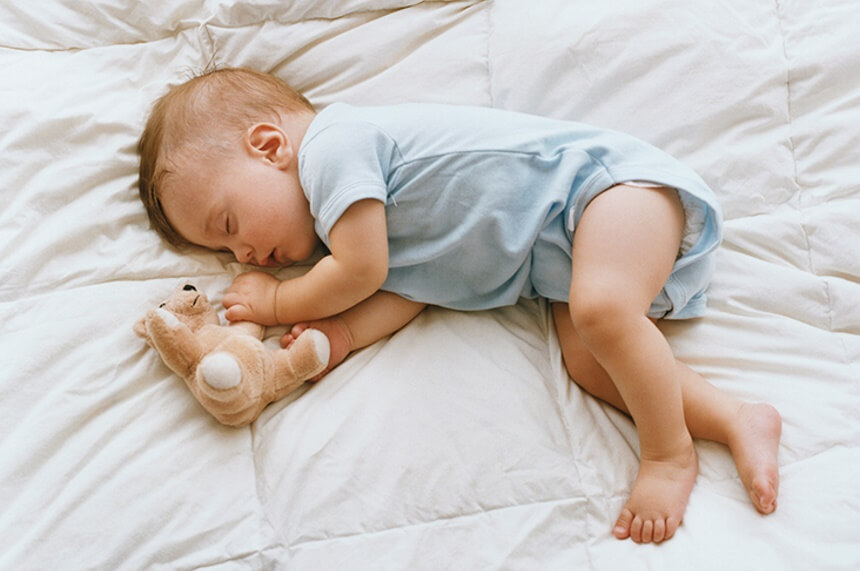
Newborn babies need 14 to 17 hours of sleep, including nap time. They sleep for about 8 to 9 hours during the day and 8 hours at night Trusted Source Newborn sleeping too much: What is normal and what to do Babies need a lot of rest as they grow and develop. How much sleep is normal for a newborn, and what can parents and caregivers do about excessive sleep? www.medicalnewstoday.com , only waking up for feeding every 3 hours.
1 to 4-month-old babies sleep around 15 to 15.5 hours. They spend around 4 to 5 hours sleeping during the day.
According to the ASM, children from 4 months to 12 months should sleep regularly for 12 to 16 hours Trusted Source New AASM Guideline on Optimal Sleep for Children The American Academy of Sleep Medicine has issued consensus recommendations for the amount of sleep needed to promote optimal health in children and teenagers. www.medscape.com , including naps.
Regular sleep for the recommended number of hours is associated with many physical and mental growth and other health benefits for kids. It improves overall health and performance in attention, learning, memory, emotional stability, quality of life, and mental and physical health.
Conversely, sleeping less than the recommended hours can cause a lack of attention and poor cognitive development. If your baby doesn’t sleep enough, they may have learning difficulties, low motivation, forgetfulness, and irritability.
As they grow up, there is also an increase in the risk of hypertension Trusted Source Can a lack of sleep cause high blood pressure? - Mayo Clinic Sleep experts recommend that adults should get seven to eight hours of a sleep each night. Getting less than six hours of sleep is known to be bad for your overall health. www.mayoclinic.org , obesity, diabetes, depression, and – in adolescents – even self-harm.
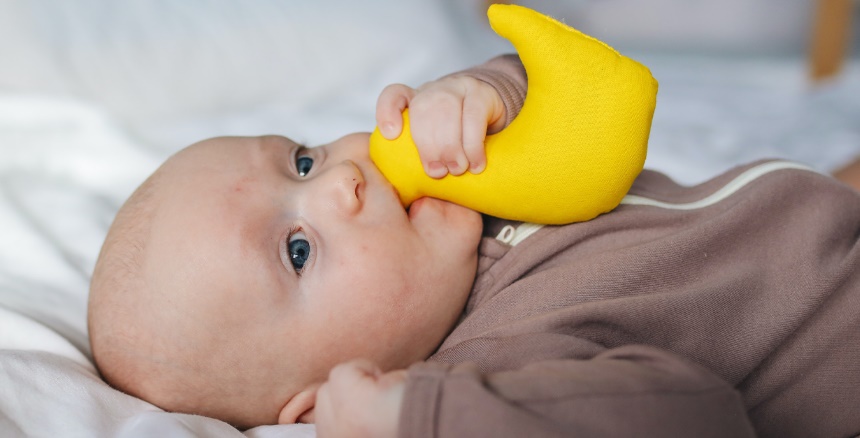
Colds, ear infections, and other childhood illnesses rarely go together with a good night’s sleep. If your baby has a fever or is breathing poorly, they will wake up at night.
You may consider blowing their nose with saline or a baby nose blower before bed. You may administer paracetamol after consulting your pediatrician.
For some children, teething is very painful! And at night, often, the pain may be accentuated by the fact that they are lying down. Nights interrupted by a baby’s crying are difficult for parents and babies.
You can place a cushion under their mattress to raise their head and ease the pain. You can also apply some homeopathy or give them a big hug.
In the first months of a baby’s life, infant colic or gastrointestinal reflux can bother them. What you put on their plate at dinner can influence the quality of their sleep.
For baby colic, a small massage before bedtime can relieve it. Later, beware of snacking after the end of the meal, as this will prolong and complicate the digestion cycle. Also, you should avoid proteins, fatty foods, and sweets!
We speak of maladaptive conditions when they make the child depend on someone or something to fall asleep. When the baby only falls asleep while sucking breast, in the arms, or their stroller while being rocked – they will have trouble falling back to sleep alone if they wake up during the night.
Sometimes, your child is not in an atmosphere conducive for good sleep. A little cartoon before bed? Bad idea. A Nintendo before sleep? Same!
The hour before bedtime should be quiet. The routine must involve 3 steps so that sleep is smooth:
This routine must be done exclusively in the child’s sleep environment in a subdued atmosphere and be identical every night. It must be done the same way, so the baby detects it is time to go to bed. It should not exceed 20 minutes.
At birth, the babies’ sleep makes no difference between day and night. Indeed, their biological clock, which regulates the periods of wakefulness and sleep, is not yet adjusted. The newborn generally sleeps 8 to 9 hours during the day and about 8 hours at night.

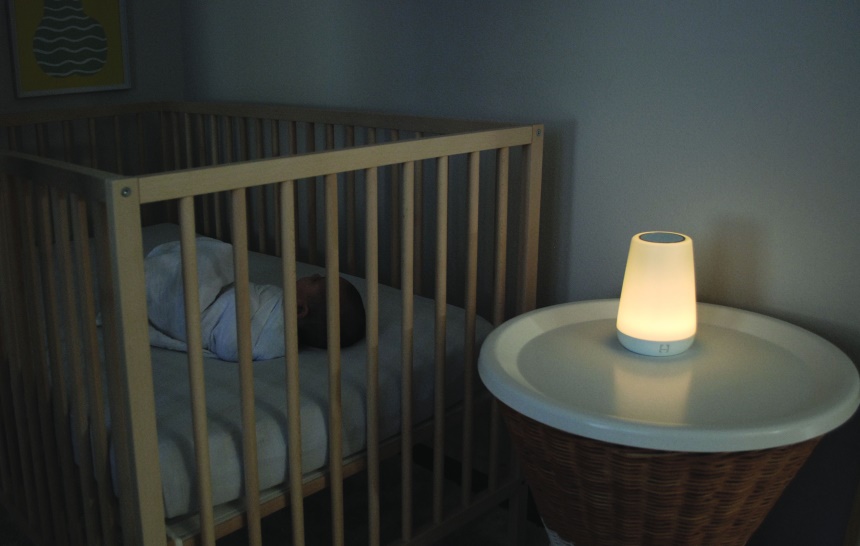
Adopt a fixed bedtime, and do not radically change the rhythm between weekdays and weekends, between Dad’s and Mom’s, in the case of alternating custody. The child should not be exposed to screens hours before bedtime. The relationship between the time of screen exposure and a decrease in sleep time has proven this.
A white noise machine has been tested to act positively on the baby’s brain and stimulate sleep. One of the best models recommended by sleep experts is the Hatch Rest Baby Sound Machine. It’s a sound machine, nightlight, and alarm clock in one. It even has an app for remote control.
Children today are very stimulated by light – so much so that they sometimes have trouble closing their eyes. However, alpha waves, which contribute to sleep, are only released once the eyelids are closed. The secretion of melatonin plays a vital role in initiating and maintaining sleep. However, it is blocked by light (especially LEDs and their blue light). Children must get used to sleeping in the dark or in a bedroom with very little light from an early age.
Children whose parents take the time to repeat an activity, like reading short stories every night, fall asleep better. That, too, is proven!
“I’m going to read you two stories, and then I’ll get out of your room.” When warned, the child accepts the rule better. Read the tale while the child is already lying in bed. Once the story is over, there will be no moving around.
The video below explains how to develop a healthy baby sleeping routine and answers the most common questions.
The environment seems to play an essential role in the case of sudden infant death syndrome (SIDS). Below are ways to reduce the risks.
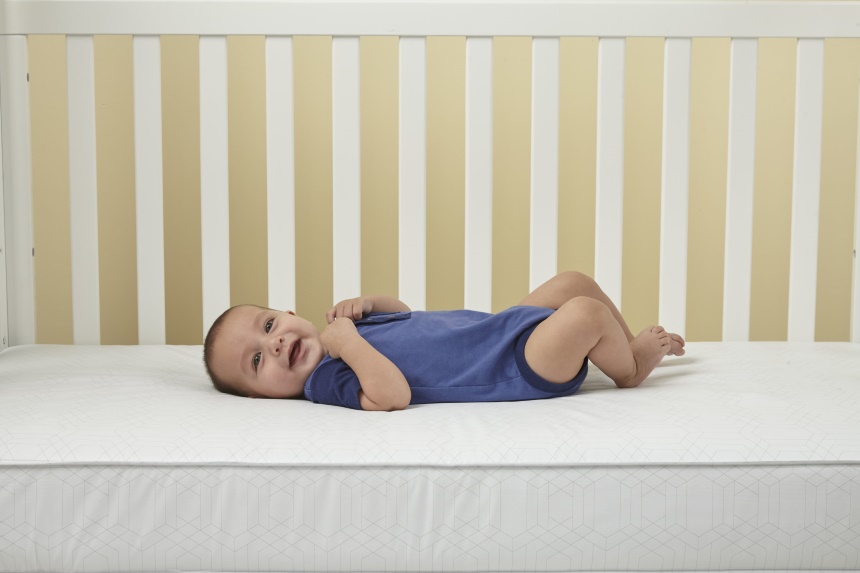
Your child’s bed should be as empty as possible. Do not put any blanket, mattress topper, pillow, duvet, or quilt in their crib. Also, avoid putting stuffed animals or a comforter in their bed.
If your child needs a pillow, do your research and only choose the best baby pillows that must have certifications.
Furthermore, the best blankets for babies are the types that don’t have soft objects. It should not be too plush and be a risk for sudden infant death syndrome (SIDS).
Don’t use this even if the baby has plagiocephaly (flattening of the head). Advice on preventing positional cranial deformities is based on respect for free motor skills, alternating positions of the infant’s head in bed, and parental carrying.
Passive or secondhand smoking plays a role in sudden infant death syndrome. This is the perfect opportunity to motivate yourself to quit smoking. Even if you don’t smoke at home, your clothes are still impregnated with cigarette smoke. It is also recommended to stop smoking during your pregnancy.
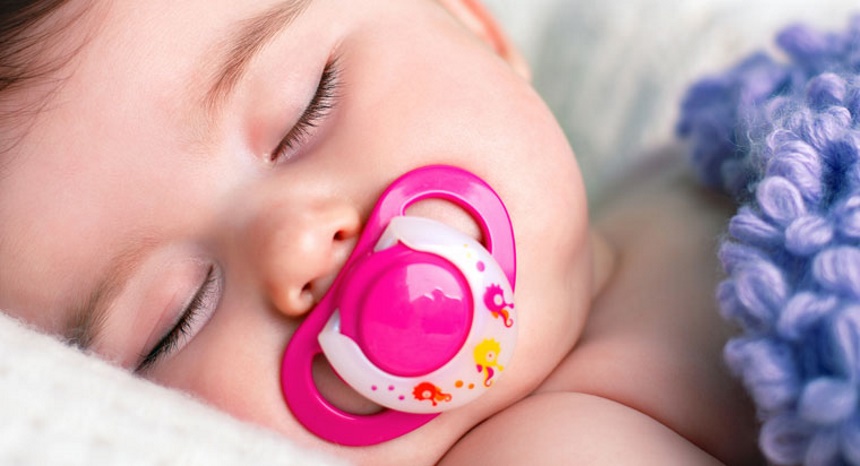
The sudden infant death syndrome rate has dropped by 50% in 20 years since pediatricians recommended that toddlers sleep on their backs instead of their stomachs. The belly position can be used during play so your baby learns to raise their head and turn around on their own.
It is recommended that the crib stay in your room for the first six months of their life or even the first year. You must place your toddler’s bed one meter from yours. This will make it easier for you to monitor and react if something goes wrong.
Meanwhile, if they have to sleep in their room or even when they are now preschoolers, they still need monitoring in their room. The best-selling baby monitoring device online is the HelloBaby Baby Monitor Device. This is a 2-unit product that includes the camera and the LCD screen, which must be with the parent in their room. It even has a lullaby function and helps the parents know the room temperature.
Co-sleeping has been popular since the early 2000s and has increased the risk of sudden infant death syndrome. A parent can doze off on their infant and suffocate them.
An American study points out that co-sleeping is associated with the risk of falling, lack of oxygen, crushed chest, or even hyperthermia.
A baby graduates to a toddler at age 1. And a toddler graduates to a child at age 3 and a teen at age 13. However, their sleep needs decrease as they grow from one stage to the other.
Toddlers need about 11 to 14 hours of sleep, including nap time which can vary from 1 to 2 years.
Preschoolers of ages 3 to 5 need about 10 to 15 hours of sleep, including nap time, according to AASM guidelines.
School-age kids need about 9 to 11 hours of sleep every night. They also need naps to improve their memory and thinking.
Teens need to sleep for 8 to 10 hours every day, according to the AASM.
This infant sleep time chart shows how sleep time reduces as a baby grows. The younger the baby is, the more they need to sleep.
Age |
Sleep Duration Requirements |
| 1- to 4-Week-Old | 14 to 17 hours |
| 1- to 4-Month-Old | Approximately 15.5 hours |
| 4- to 12-Month-Old | 12 to 16 hours |
| Toddlers (1 to 3 Years Old) | 11 to 14 hours |
| Preschool (3 to 5 Years Old) | 10 to 15 hours |
| School-age (6 to 12 Years Old) | 9 to 11 hours |
| Teens (13 to 18 Years Old) | 8 to 10 hours |
Napping is a healthy habit in children since it is a natural repairer that brings enormous bodily benefits. Napping helps kids learn and develop their memories. It allows them to be calmer, less irritable, friendly, and more attentive and helps them assimilate better what they have learned during the day.

In rare cases, oversleeping can alert parents. Is your child irritable despite sleep that seems good? Do they remain tired after sleep? Do they lack interest in games and socializing? If this is the case: consult a doctor to make a diagnosis and find a solution together. Be aware that it may be an iron deficiency, especially in older babies.
Your child’s sleep pattern will change from the first weeks of life. Count on an average cycle duration of 17 to 20 hours of sleep per day for the first week. After a month, they will sleep about 16 hours a day, compared to about fifteen hours between 6 and 12 months.
The answer to how much sleep do babies need will depend on age. In the case of a newborn, there is no nocturnal pattern during the first weeks. Between six weeks and three months, there is a difference in the day/night pattern, and they need to sleep around 16 hours daily.
At six months, they sleep between 13 and 14 hours total, with 2 or 4 hours of nap divided into two.
After the year, they sleep 12 hours a day with a nap of between an hour and a half and three hours.
To put things into perspective for those who may seem worried, their baby sleeps a lot. You should be more concerned if they don’t sleep enough. And if they do, it also means more time in bed for mom and dad. Happy siesta to the whole family!